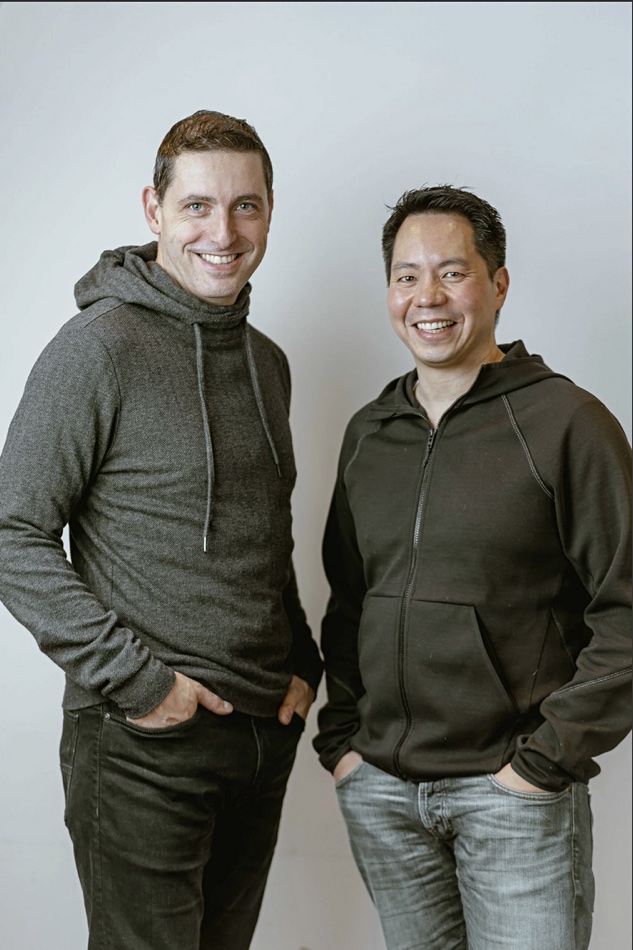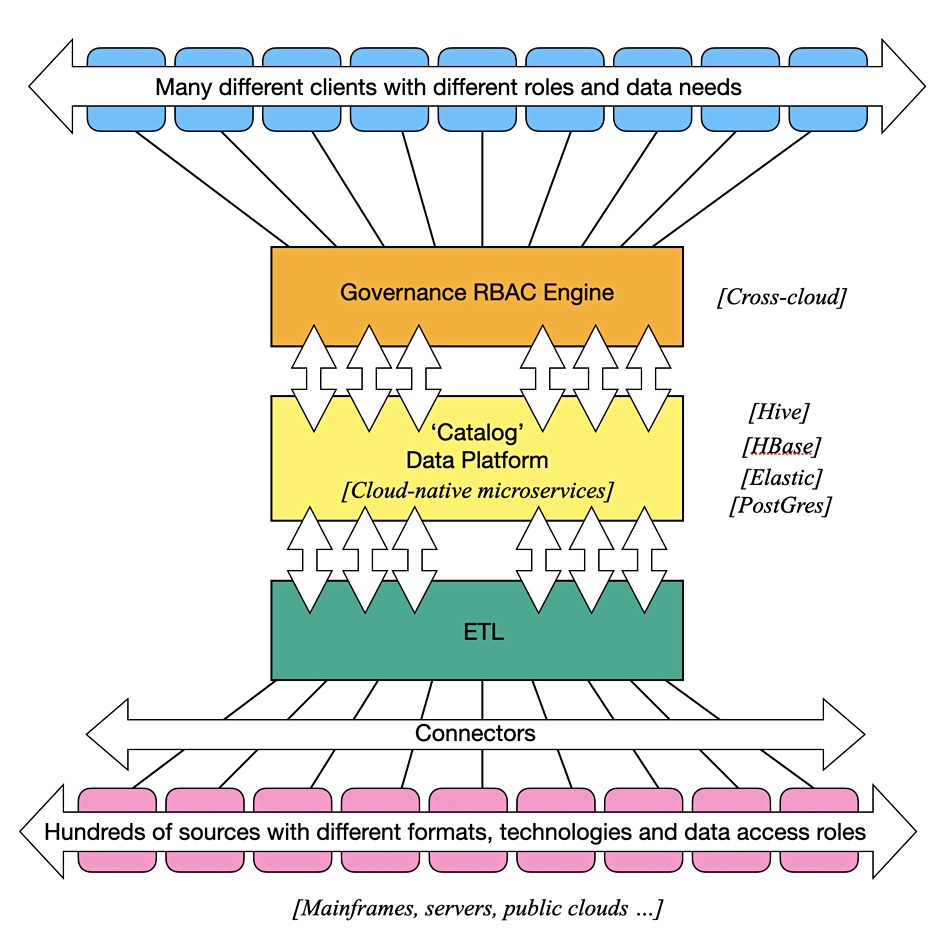UK startup WCKD RZR has unveiled Data Now software at Mobile World Congress in Barcelona that it says catalogs different databases anywhere in a customer’s network and gives them instant access to all their databases’ content.
A book library has a catalog – a single source of truth about the books it stores. It has a few buildings, one type of thing to catalog, and a homogeneous user population. A multinational organization like a bank is light years away from that happy state. WCKD RZR wants to move it from silo proliferation and data ignorance to the comfort of data asset knowledge and governed access.
Chuck Teixeira, founder and CEO of WCKD RZR, explained in a statement: “In Data Now, we’ve created the universal ‘master key’ for data discovery. Our goal is to revolutionize the way businesses manage and access their data, and our solution does just that. It’s truly disruptive and can benefit every large organization on the planet. Whether its multinational banks, government institutions or regional retailers; Data Now acts as their supercharged data connector and access accelerator.”
Data Now provides a central location for businesses to see, search and access data across an entire organization. Once discovered, the software enables users to view and download data from multiple databases, in any environment around the world, seamlessly and in full compliance with all global data regulations.
Why this is a big deal?
A bank like HSBC, Barclays or Citibank has hundreds of separate data silos holding data for specific applications that the bank has developed for specific applications in specific geographies with individual regulations and data access rules. It can be dealing with multinational customers whose myriad operations have a presence in some or many of these silos.
If we ask the question “What data does the bank hold on that customer?” the typical answer is: “It doesn’t know” – because it can’t find out. Each data silo is its own micro-universe with its own access rules, data element names, data formats, storage system and its own management.

The WCKD RZR story began when HSBC’s UK and US operations entered a deferred prosecution agreement with the US Justice Department in 2012 because it had failed to maintain an effective anti-money laundering program and to conduct appropriate due diligence on its foreign account holders.
It forfeited $1.256 billion, paid $665 million in civil penalties, and had to update its records so it could monitor potential money laundering attempts. CTO Jon Farina told us: “You want to make sure that you can monitor transactions, credit card payments and flows of cash across our internal systems to make sure that something nefarious is not being done.”
This involved collating some 10PB of data covering 1.6 million clients in 65 legal jurisdictions. Teixeira and Farina, who were working at HSBC at the time, had the job of combing through the many data silos involved and creating, as it were, a single and accessible source of truth.
It was as if they were standing on top of Nelson’s Column in London’s Trafalgar Square, surveying hundreds of different buildings, and saying they had to get into each and every one and find the data inside.
They built a Hadoop system on-premises at HSBC with tens of thousands of tables and machine learning software to detect transactions across different clients to spot potential financial crimes. This was an absolutely massive extract, transform and load (ETL) operation, and they wanted it automated. But there was no software to do that. They realized that it was, in fact, a general problem, not one unique to HSBC.
They also thought it could be automated if connectors were built to the underlying silos and their contents cataloged and indexed, as well as their access routes and restrictions discovered. All this metadata could be entered into a single database, an abstraction layer lens, through which the underlying data silos could be virtualized into a single entity without their data contents being moved or migrated anywhere.
This realization triggered Teixeira into starting WCKD RAZR – named after his pet bulldog – in 2020, with Farina joining as CTO in May last year, when the company raised $1.2 million in a pre-seed round.
Farina briefed us on this background and on WCKD RZR’s software development. We constructed a diagram showing the basic structure of WCKD RZR’s Data Watchdog technology:

Clients access the catalog, search for data then request it. Their access status is checked and, if valid, DataWatchdog will fetch the data from the underlying sources and deliver it to them.
There are three aspects to this: find, govern and access. Data Watchdog enables customers to find and govern their data in each country, in real time, and be fully compliant with relevant data sharing, privacy and governance rules. It spiders through the underlying data sources – in minutes it’s claimed – and adds them to the catalog, without touching, transforming or duplicating the original data sources. The Data Now software provides access to the data located by Data Watchdog and can mask sensitive information such as debit card numbers.
Farina said: “Data Now is a full-service data access accelerator. We are revolutionizing the way organizations can search multiple databases for information that they hold. Now they can search it, see it, find it, use it, monetize it. Mobile phones were transformed by the iPhone, video rentals were redefined by Netflix, and data access is now being revolutionized by Data Now.”
There is no need to migrate data from multiple sources into a single mega-database in a digital transformation project. There are aspects of this which are similar to the data orchestration provided by Hammerspace, but WCKD RZR is focused more on source databases rather than raw file or object data storage systems.








